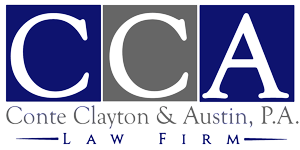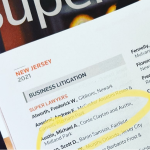What Type of Business Entity is right for me?
New Jersey offers a number of options to organize your new business. The most common business entities that we form for clients are corporations and limited liability companies. Corporations commonly are categorized as an “S-Corp” or a “C-Corp” which are tax elections that result in different operational treatment of the entity. In most cases, our clients elect not to operate their business as a sole proprietorship (i.e. no entity) because sole proprietors receive no personal limitation on liability from business liabilities.
Choosing the right entity type is something that must be determined on a case-by-case basis, often with input from tax advisors. Below is comparison of a few common concerns that business owners might consider when selecting a new entity for their business operations.
If you are considering starting, expanding, buying, or selling a business, Conte Clayton & Austin, P.A. may be your best resource. Give us a call today to discuss your business law needs.
| Limited Liability Company | S-Corp | C-Corp | Sole Proprietorship | |
| Limitation on Owner’s personal liability | Yes | Yes | Yes | No |
| Taxation on entity profits and distributions (i.e. “double taxation”)* | No | No | Yes | No |
| Annual Meetings Required | No | Yes | Yes | No |
| Charging Order Protection** | Yes | No | No | N/A |
| Distributions of Profits must be in proportion to ownership percentage? | No | Yes | Yes | N/A |
| Strict operational formalities | No | Less than C-Corp | Yes | N/A |
| Multiple Classes of Stock or Membership permitted? | Yes | No | Yes | N/A |
*C-Corp profits are taxed at the corporate level prior to distributions to ownership. Owners are also taxed on profits they receive. S-Corps and LLCs are “pass through entities,” meaning profits flow through the entity directly to the owner and are taxed only at one level. You should consult a qualified CPA or tax advisor for guidance on tax strategy.
**A charging order is a mechanism for a creditor to take possession of certain assets, such as stock. Charging Orders are generally not permitted for LLC membership interest, however a personal creditor could intercept any distributions from an LLC or Corp flowing to a debtor.




